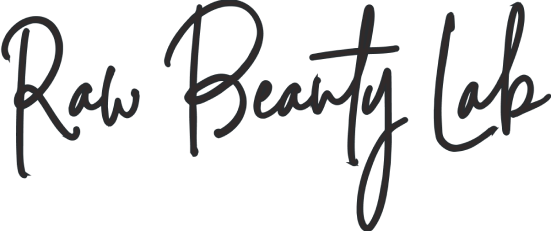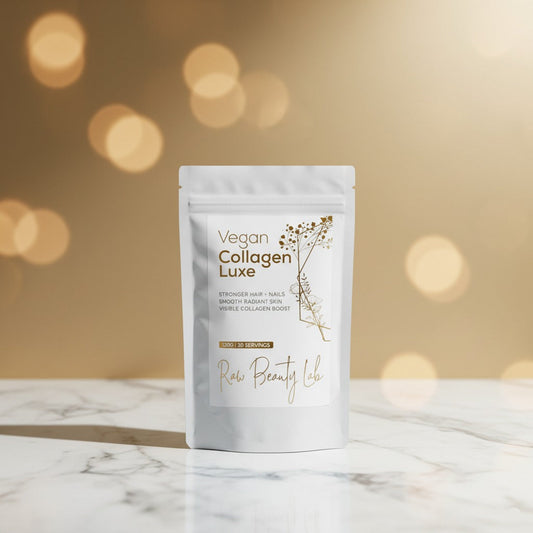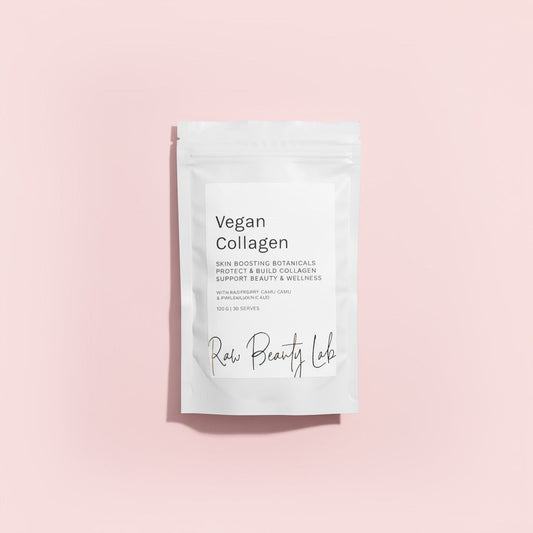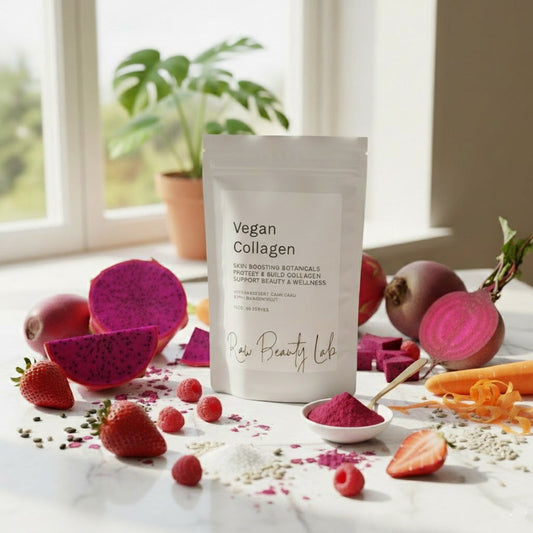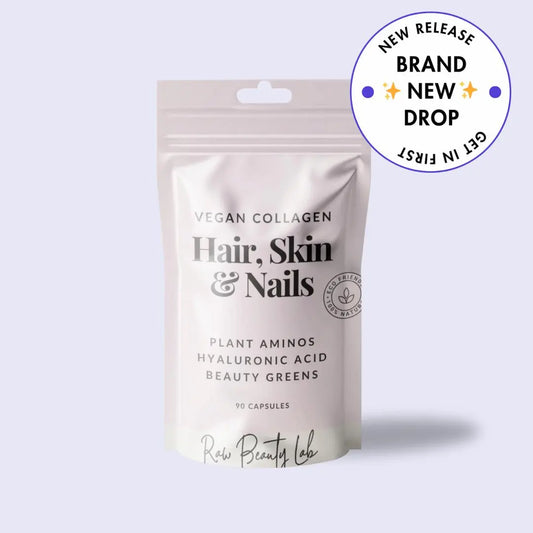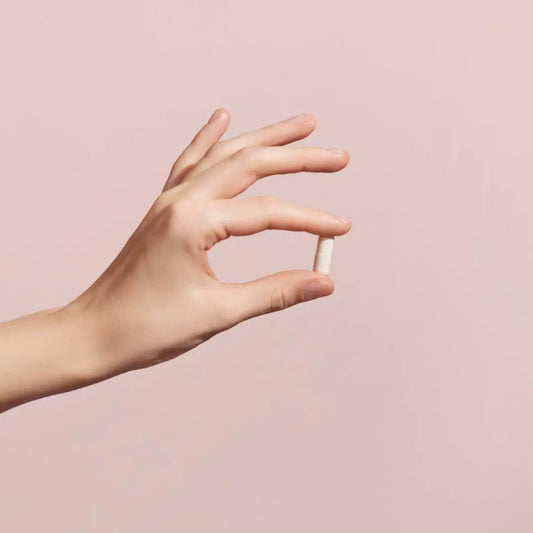Table of contents
Collagen has been taking the beauty industry by storm and if you haven’t already established that collagen is the secret to keep your skin youthful and glowing – now you know!
What is Collagen?
In the flurry the beauty industry has created about the miracle protein and the benefits of collagen for skin, I’m sure you’ve stopped to ask: collagen, what is it?
Collagen makes up 80% of the protein in your skin and is responsible for keeping it plump, elastic and wrinkle free! Not to mention it’s importance in keeping your hair and nails strong, your gut chugging along and your joints healthy.
So, you’re all caught up on what does collagen do for you. The question remains however, what is collagen made off and how do you increase collagen in your body naturally?

What does collagen do?
If you are wondering what is collagen good for, the main collagen protein benefits are centred around your skin. Building this strong fibrous tissue in your skin can help increase the amount of skin protein collagen, to help smoothen your skin, get rid of forehead wrinkles and marionette lines, and bring out your natural glow.
However, when collagen is taken as a supplement, it can work its magic throughout the body! You can take collagen for weight loss, to increase your energy levels naturally and to reduce your appetite. If you’re interested in collagen for weight loss, Raw Beauty Lab’s Vegan Protein and Collagen builder is a collagen protein powder designed to help you lose weight and tone up while nourishing your skin to build collagen peptides.
You can also take collagen for joints, to help support healthy joints with age and reduce friction between your bones.
You can also benefit greatly by taking collagen for menopause. Plant based collagen supplements like Raw Beauty Lab’s Vegan Collagen works especially well to combat menopausal symptoms because they are full of plant oestrogens that mimic the function of human oestrogen. The phytoestrogens essentially increase collagen skin receptors, increasing collagen production in the skin, preventing your skin from sagging during and after menopause.
What is collagen made of?
You frequently hear the terms bovine collagen and marine collagen as a source of collagen, but how is collagen made (otherwise known as collagenesis) in the body and what amino acids are in collagen? Well, the collagen amino acids are: proline, glycine and any third amino acid (stay with me, I promise I’ll keep the science to a minimum!).
Glycine and proline come together in a series of reactions to produce the collagen protein. However, these reactions also require other nutrients, namely: zinc, copper and vitamin C. All of your collagen starts off initially as the structure of collagen known as procollagen – a smaller molecule made up of 2 amino acids: proline and glycine. These amino acids come together with vitamin C to produce pro collagen.
A third amino acid (this can be any amino acid) is added to procollagen which is then converted to the fibrous protein collagen through a series of biochemical reactions (don’t worry, I’ll spare you the details). Bringing the individual collagen fibers together requires nutrients like zinc and copper to activate enzymes required for the reaction to produce the final structure of a collagen molecule. The final collagen structure is essential for optimum collagen function.
Check out the collagen diagram below to understand what is in collagen and where collagen is found in the skin:

Types of Collagen
There are 28 different types of collagen molecules in the body, but (thankfully), most collagen types can be categorised into 3 types of collagen: Collagen type 1 and 3 make up most of the collagen in skin, although type 1 collagen is the prominent form in your skin. Type 2 collagen makes up the collagen found in your joints and gut.
If you are wondering where does collagen come from, different collagen sources provide you with different types of collagen. Collagen type 1 and 3 can be sourced from bovine collagen or vegan collagen supplements. Collagen type 2 can be sourced from marine collagen or vegan collagen supplements.
So where does bovine and marine collagen fit into all this?
Animal based collagen provides you with the amino acids needed to produce collagen, but they can’t directly replace the collagen protein in skin. Your body still needs to make its own collagen and elastin by breaking down the collagen peptides into amino acids and then going through the process described above.
Additionally, while amino acids are important, they aren’t enough to produce collagen themselves. You still need nutrients like vitamin C, zinc and copper to effectively produce collagen and reap the benefits of collagen, which animal collagen supplements may lack.
Furthermore, marine collagen and bovine collagen supplements can contain hydrolysed, which may work better but requires significant processing, further stripping any nutrients present in the first place.
Not to mention the highly processed collagen powder full of synthetic vitamins, sugars and flavours (because no-on ever said raw fish skins taste so good!) wouldn’t really be doing your digestive system and overall health any favours. I won’t go into all the detail now, but I have a whole article on the pitfalls of using supplements filled with additives and how damaging they can be for your skin!

How do you increase collagen in your body naturally?
So, if animal products aren’t necessary to produce natural collagen, then what collagen products should you be taking to help you build collagen and gain the benefits collagen provides such as improving your skin and bones?
Well, you’ll be happy to know that the amino acids, vitamin C, zinc and copper can all be found in abundance in plant-based foods. Here’s a quick rundown of the different food types you need to nourish your body with to make sure you are getting all the nutrients to help it build collagen:
Proline: asparagus, mushroom, cabbage, chickpeas, alfalfa sprouts, tofu, tempeh and other soy products
Glycine: sunflower seeds, pumpkin seeds, soy products, spinach, peas, hazelnuts and walnuts and plant based protein powders like sunflower seed powder found in our vegan collagen
Vitamin C: strawberries, raspberries, red bell peppers, broccoli, brussels sprouts, dragon fruit and citrus fruits
Copper: cashews, sesame seeds, almonds, spinach, Swiss chard, shiitake mushrooms, spirulina, dark chocolate (hallelujah!), carrots, sunflower seeds
Zinc: beetroot, hemp seeds, pine nuts, almonds, beans, quinoa, lentils, chickpeas, baobab
The benefit of plant-based foods is that they provide all the essential nutrients you need to produce protein collagen. In addition, you’re also getting additional collagen benefits for skin, such as a generous helping of anti-aging antioxidants that protect your skin from damaging UV exposure and pollution and help bring out your natural glow!
While including a varied balanced diet is important for the health of your skin and wellbeing, ensuring you eat at least 1 of each food group from the list above can be hard when you’re busy!
That’s why we’ve done the hard work for you and included all the nutrients from collagen foods that you’ll need to help your skin form protein collagen for effective long-term results into a delicious collagen drink. We've worked hard to make sure our ingredients are all organic, vegan and we’ve got no (and I mean nothing, nil, nada… you get the idea) additives at all.
Just 9 superfoods blended into a delicious berry flavoured drink to make up one of the best collagen supplements in the UK market. Don't take my word for it. The Raw Beauty Lab Vegan Collagen Supplement won the beauty shortlist award!
Superfoods can give your skin all the skin collagen benefits with an added helping of skin loving phytonutrients to give your collagen production a bigger boost! Start nourishing your skin from within and build collagen proteins effectively with Raw Beauty Lab!
